第88章 XXVII. A VISIT AT JUJA(1)
Next day we left all this; and continued our march. About a month later, however, we encountered McMillan himself in Nairobi. I was just out from a very hard trip to the coast-Billy not with me-and wanted nothing so much as a few days' rest. McMillan's cordiality was not to be denied, however, so the very next day found us tucking ourselves into a buckboard behind four white Abyssinian mules. McMillan, some Somalis and Captain Duirs came along in another similar rig. Our driver was a Hottentot half-caste from South Africa. He had a flat face, a yellow skin, a quiet manner, and a competent hand. His name was Michael. At his feet crouched a small Kikuyu savage, in blanket ear ornaments and all the fixings, armed with a long lashed whip and raucous voice. At any given moment he was likely to hop out over the moving wheel, run forward, bat the off leading mule, and hop back again, all with the most extraordinary agility. He likewise hurled what sounded like very opprobrious epithets at such natives as did not get out the way quickly enough to suit him.
The expression of his face, which was that of a person steeped in woe, never changed.
We rattled out of Nairobi at a great pace, and swung into the Fort Hall Road. This famous thoroughfare, one of the three or four made roads in all East Africa, is about sixty miles long. It is a strategic necessity but is used by thousands of natives on their way to see the sights of the great metropolis. As during the season there is no water for much of the distance, a great many pay for their curiosity with their lives. The road skirts the base of the hills, winding in and out of shallow canyons and about the edges of rounded hills. To the right one can see far out across the Athi Plains.
We met an almost unbroken succession of people. There were long pack trains of women, quite cheerful, bent over under the weight of firewood or vegetables, many with babies tucked away in the folds of their garments; mincing dandified warriors with poodle-dog hair, skewers in their ears, their jewelery brought to a high polish a fatuous expression of self-satisfaction on their faces, carrying each a section of sugarcane which they now used as a staff but would later devour for lunch; bearers, under convoy of straight soldierly red-sashed Sudanese, transporting Government goods; wild-eyed staring shenzis from the forest, with matted hair and goatskin garments, looking ready to bolt aside at the slightest alarm; coveys of marvellous and giggling damsels, their fine-grained skin anointed and shining with red oil, strung with beads and shells, very coquettish and sure of their feminine charm; naked small boys marching solemnly like their elders;camel trains from far-off Abyssinia or Somaliland under convoy of white-clad turbaned grave men of beautiful features; donkey safaris in charge of dirty degenerate looking East Indians carrying trade goods to some distant post-all these and many more, going one way or the other, drew one side, at the sight of our white faces, to let us pass.
About two o'clock we suddenly turned off from the road, apparently quite at random, down the long grassy interminable incline that dipped slowly down and slowly up again over great distance to form the Athi Plains. Along the road, with its endless swarm of humanity, we had seen no game, but after a half mile it began to appear. We encountered herds of zebra, kongoni, wildebeeste, and "Tommies" standing about or grazing, sometimes almost within range from the moving buckboard. After a time we made out the trees and water tower of Juja ahead; and by four o'clock had turned into the avenue of trees. Our approach had been seen. Tea was ready, and a great and hospitable table of bottles, ice, and siphons.
The next morning we inspected the stables, built of stone in a hollow square, like a fort, with box stalls opening directly into the courtyard and screened carefully against the deadly flies.
The horses, beautiful creatures, were led forth each by his proud and anxious syce. We tried them all, and selected our mounts for the time of our stay. The syces were small black men, lean and well formed, accustomed to running afoot wherever their charges went, at walk, lope or gallop. Thus in a day they covered incredible distances over all sorts of country; but were always at hand to seize the bridle reins when the master wished to dismount. Like the rickshaw runners in Nairobi, they wore their hair clipped close around their bullet heads and seemed to have developed into a small compact hard type of their own. They ate and slept with their horses.
Just outside the courtyard of the stables a little barred window had been cut through. Near this were congregated a number of Kikuyu savages wrapped in their blankets, receiving each in turn a portion of cracked corn from a dusty white man behind the bars.
They were a solemn, unsmiling, strange type of savage, and they performed all the manual work within the enclosure, squatting on their heels and pulling methodically but slowly at the weeds, digging with their pangas, carrying loads: to and fro, or solemnly pushing a lawn mower, blankets wrapped shamelessly about their necks. They were harried about by a red-faced beefy English gardener with a marvellous vocabulary of several native languages and a short hippo-hide whip. He talked himself absolutely purple in the face without, as far as my observation went, penetrating an inch below the surface. The Kikuyus went right on doing what they were already doing in exactly the same manner. Probably the purple Englishman was satisfied with that, but I am sure apoplexy of either the heat or thundering variety has him by now.
Before the store building squatted another group of savages.